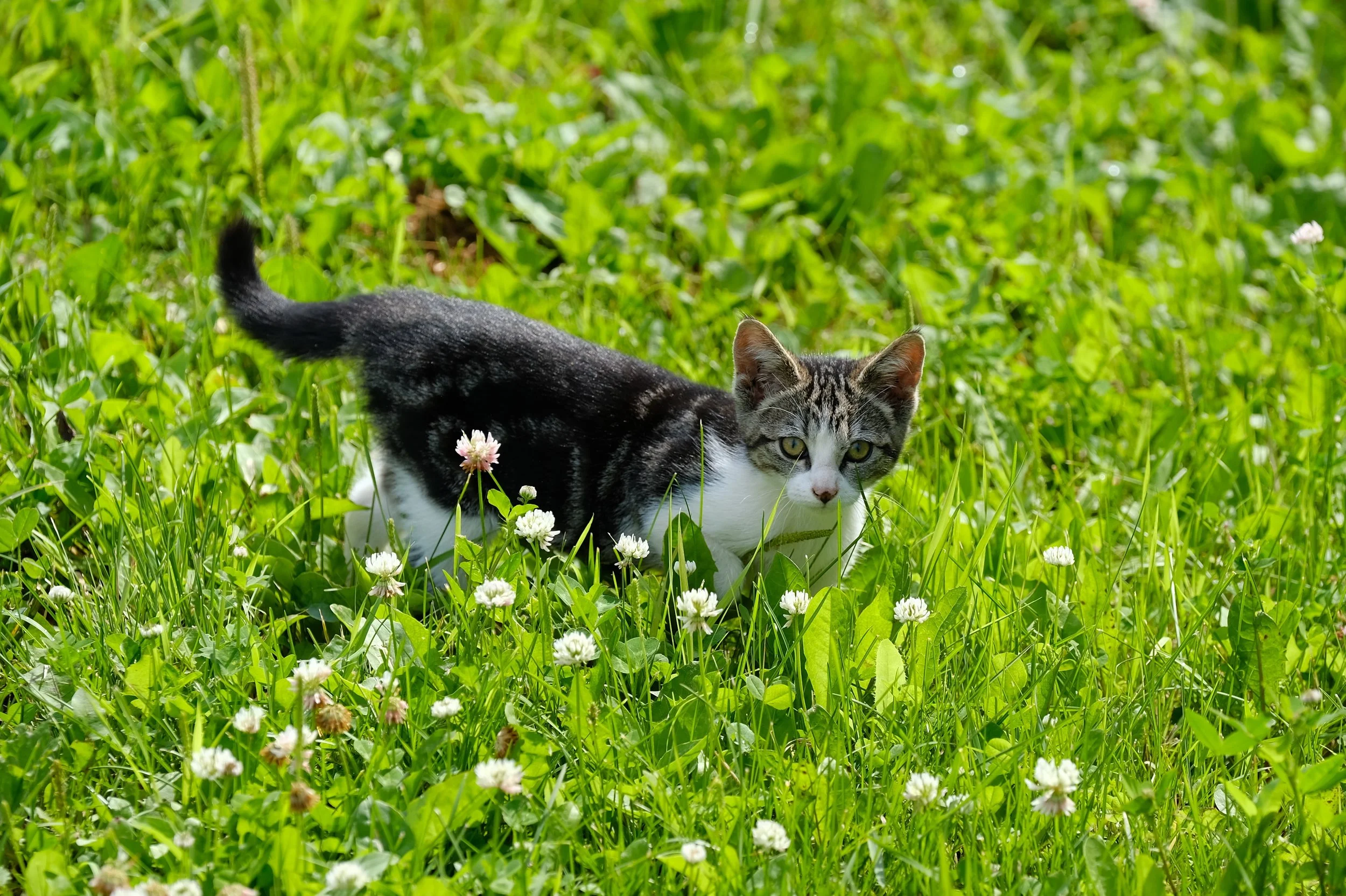Keep your pet safe this spring
Spring is here! Whilst we might look forward to the warmer weather and colourful blooms, there are a number of aspects that may cause danger for our beloved pets. Here are some safety tips to help keep your pet safe this spring:
Bee & wasp stings – the venom from bee and wasp stings can cause problems in your pet ranging from mild irritation and pain to a life threatening anaphylactic shock. If you notice any serious bite symptoms such as severe swelling, excessive drooling, difficulty breathing, overall weakness or collapse, take your pet to the vet immediately.
Spring cleaning – spring cleaning is a tradition in many households. Almost all cleaning products, even natural ones contain chemicals that may be harmful to pets. Be sure to keep all cleaners and chemicals out of your pet’s way, both during use and in storage.
Fertilisers & insecticides – they may keep our lawns and plants healthy, but their ingredients can be dangerous if your pet ingests them. Always label and store them out of reach and call us immediately if your pet has swallowed anything poisonous.
Snail & slug bait – is highly attractive for dogs and cats and ingestion even in small quantities can be fatal. Even those advertised as “pet safe” can still cause severe gastrointestinal signs and red blood cell damage. So reconsider whether these are absolutely necessary in your garden.
Poisonous plants – spring flowers look great in the home and garden but some can be toxic to your pet. Lilies are highly toxic and potentially fatal to cats. Some types are also toxic to dogs. All parts of the plant, including the pollen, flower, leaves are poisonous so make sure they are well out of reach. Other plants that can also be dangerous if eaten by your pet include azaleas, tulips, daffodils and carnations.
Ease back into exercise – if you pet has been less active over the winter months they may have gained some weight, lost muscle tone or be a little stiff when it comes to exercise. Reintroduce them slowly back into their favourite activities until they are used to an increased level of physical activity.
Be safe in the sun – as the weather warms up its important to protect your pet from the sun. Make sure your pet has plenty of fresh water and a cool, shady place to rest during the day. Avoid walking on pavements that can burn your pet’s paws. And never leave your pet alone in a parked car.
Fleas & ticks – the warmer weather brings an abundance of fleas and ticks. Make sure you are up to date with your pet’s parasite prevention. Don’t forget to check your pet for ticks after walks in wooded or grassy areas. Contact us for the best prevention program for your pet.
If you have any questions about your pets health, please give us a call on 03 8784 4444.

